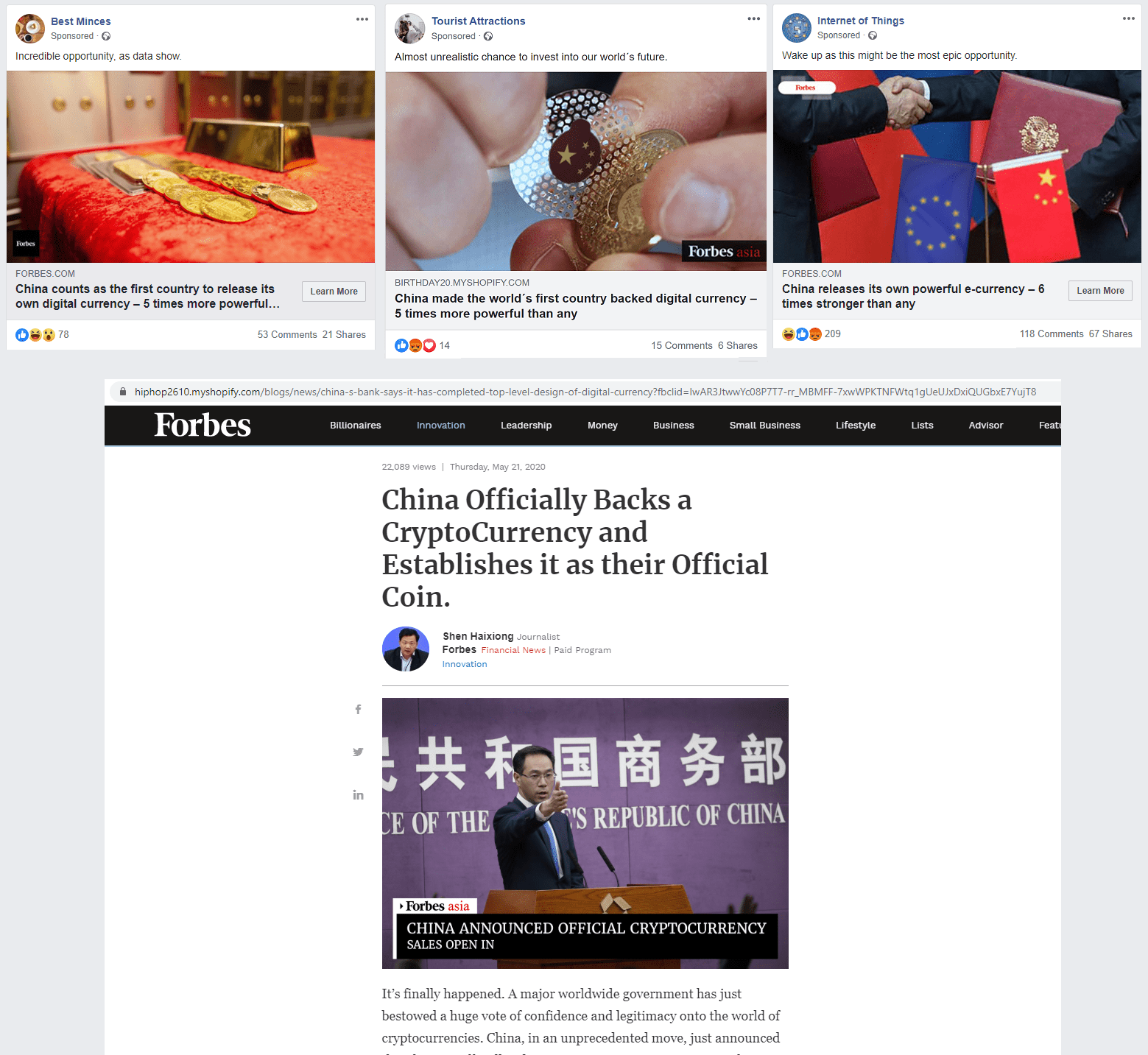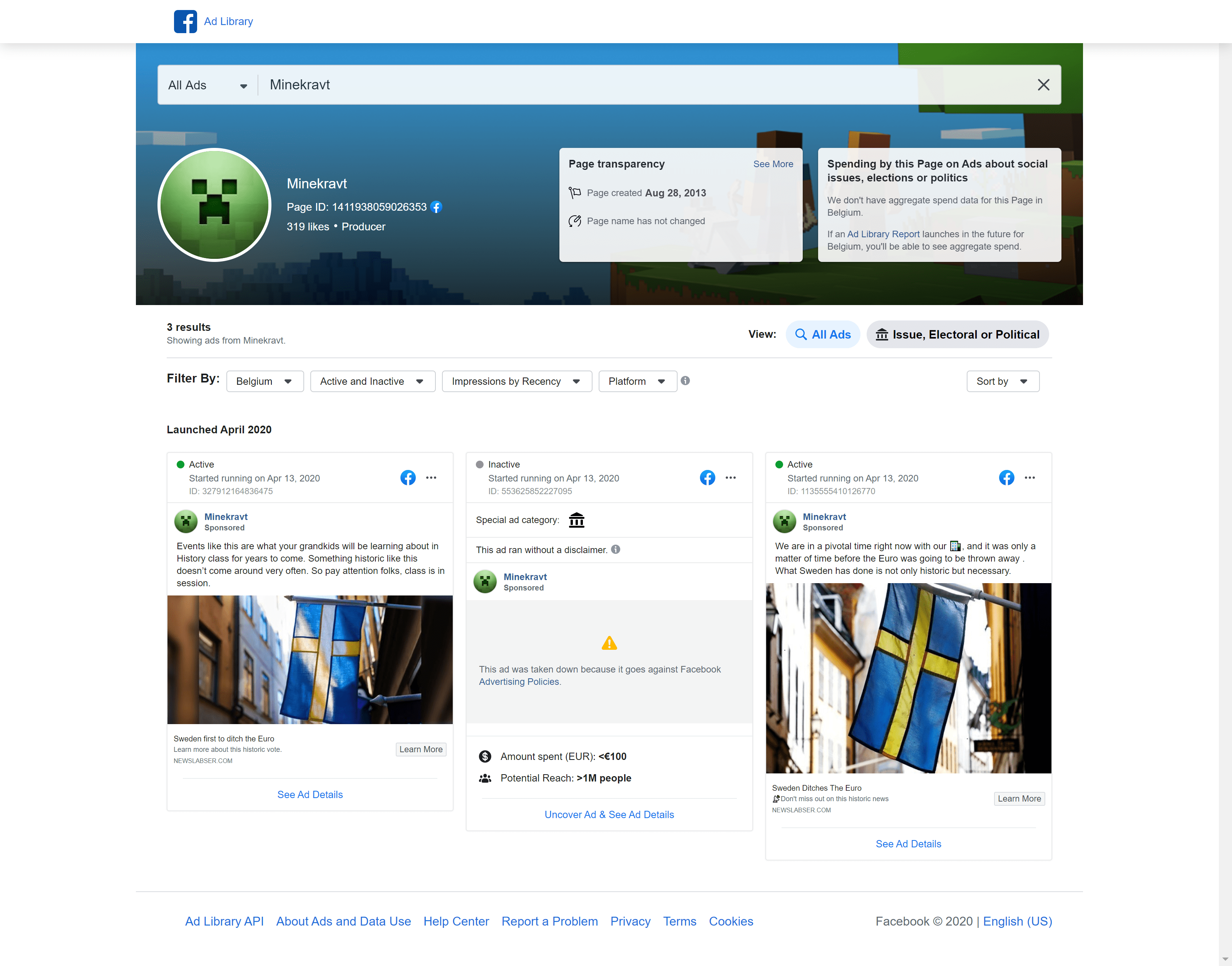A European civil society organization promoting digital rights has issued warnings regarding new cryptocurrency-related scams. By impersonating reputable websites and running fake advertisements on Facebook, the scammers are duping victims to provide personal data and to invest in unexisting digital asset projects.Fake Cryptocurrency Investment OpportunitiesThe North Macedonia-based Metamorphosis Foundation – a member of the European Digital Rights (EDRI) network – reported today that fake Forbes articles continue appearing on Facebook.The perpetrators post intriguing articles supposedly leading to well-known and respected websites such as Forbes. In reality, however, those articles redirect the victims to a website hosted in Ukraine, allegedly run by a Russian citizen.False Faceook Ad
Topics:
Jordan Lyanchev considers the following as important: AA News, crypto scams, security
This could be interesting, too:
Chayanika Deka writes Yuga Labs Secures Major Win as SEC Closes Investigation Without Charges
Andrew Throuvalas writes Bitcoin Soars Back To ,000 After BlackRock CEO Says “Buy The Dip”
Chayanika Deka writes XRP, SOL, and ADA Inclusion in US Crypto Reserve Pushes Traders on Edge
Chayanika Deka writes Why Arthur Hayes Is Bullish on Bitcoin Under Trump’s Economic Strategy
A European civil society organization promoting digital rights has issued warnings regarding new cryptocurrency-related scams. By impersonating reputable websites and running fake advertisements on Facebook, the scammers are duping victims to provide personal data and to invest in unexisting digital asset projects.
Fake Cryptocurrency Investment Opportunities
The North Macedonia-based Metamorphosis Foundation – a member of the European Digital Rights (EDRI) network – reported today that fake Forbes articles continue appearing on Facebook.
The perpetrators post intriguing articles supposedly leading to well-known and respected websites such as Forbes. In reality, however, those articles redirect the victims to a website hosted in Ukraine, allegedly run by a Russian citizen.

Once the user arrives at the fraudulent website, the misrepresented article offers him the chance to invest in this “once-in-a-lifetime” new Chinese cryptocurrency. If the victim bites and provides some personal data to the scammers, he becomes the target of numerous phone calls persuading him to start paying installments of $250.
The requested amount, however, will increase in time through various manipulative techniques offering different levels of returns.
“Misleading advertisements continue to target social network users across the world. Using the public data provided by Facebook about the ads targeting the audience based in North Macedonia as a starting point, the Metamorphosis team revealed that the same ads are served in almost all European countries, as well as nations in the Middle east.
Scammers use pages about culture, even about cookies to launch ads that lead the users to web pages and blogs that look the same.” – noted Bardhyl Jashari, Executive Director of Metamorphosis.
Fraudsters Target Children
According to Jashari, what’s even more troubling is that these organized crime networks are also running false ads aimed at children and teenagers.
He pointed out that they use the game Minecraft (titled Minekravt), which is particularly popular among nine to eleven-year-old kids, to continue disseminating fraudulent information. The most affected countries from this fraudulent activity are Russia, Austria, Belgium, Singapore, Qatar, and the United Arab Emirates.

Typically, the scammers provide some incentive for victims to leave their personal information. It could vary from discount coupons to special codes to employ in the games.
Despite the imminent threat of being tricked, the Metamorphosis report indicates that similar activities could condition future audiences to become more susceptible to both disinformation and scamming.
